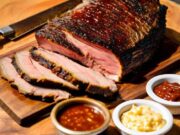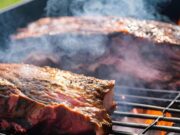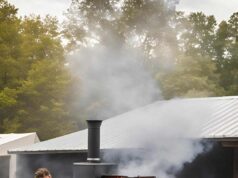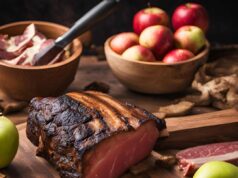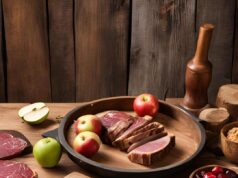- Key Takeaways:
- Convenience of Charcoal vs. Gas Grills
- Flavor Profiles: Charcoal vs. Gas
- Temperature Control and Cooking Techniques
- Health Considerations of Each Grill Type
- Environmental Impact: Which is Greener?
- Cost and Fuel Efficiency Comparison
- Cleaning and Maintenance Requirements
- Versatility in Cooking: What Can You Grill?
- Frequently Asked Questions
When it comes to grilling, the choice between charcoal and gas often ignites passionate debates among enthusiasts.
Each method presents distinct advantages, ranging from flavor and convenience to cost and environmental impact.
This article will delve into the essential aspects of both grilling types, assisting you in navigating the decision-making process.
Whether you are a seasoned pitmaster or a casual backyard cook, understanding these differences will enable you to select the ideal grill for your culinary endeavors.
Key Takeaways:
- Charcoal grills offer a more traditional grilling experience with smoky flavor and greater temperature control, but require more time and effort to use and maintain.
- Gas grills provide convenience and ease of use with quick heating and minimal cleaning, but lack the smoky flavor and can be less environmentally friendly.
- In the ultimate showdown between charcoal and gas grills, the right choice ultimately depends on personal preference and priorities in terms of flavor, convenience, and environmental impact.
Convenience of Charcoal vs. Gas Grills
When considering convenience, gas grills typically take the lead. They offer an easy ignition process and straightforward temperature control, facilitating a seamless grilling experience, particularly for those who prioritize efficiency in outdoor cooking sessions.
In contrast, charcoal grills require a more hands-on approach, as you must light the coals and wait for them to reach the ideal cooking temperature. While charcoal grilling enthusiasts appreciate the rich flavors that charcoal imparts to their food, the time and effort involved can be a drawback for some.
Gas grills generally include built-in thermometers, making temperature regulation straightforward. In contrast, charcoal grilling demands a more intuitive understanding of heat management. Fuel availability is another important factor—gas can be conveniently refilled, but it may not be as readily accessible as charcoal briquettes.
The cleaning process is also simpler with gas grills, as there is no ash residue to dispose of after grilling, which enhances the overall experience for those who prefer a quick and easy cleanup.
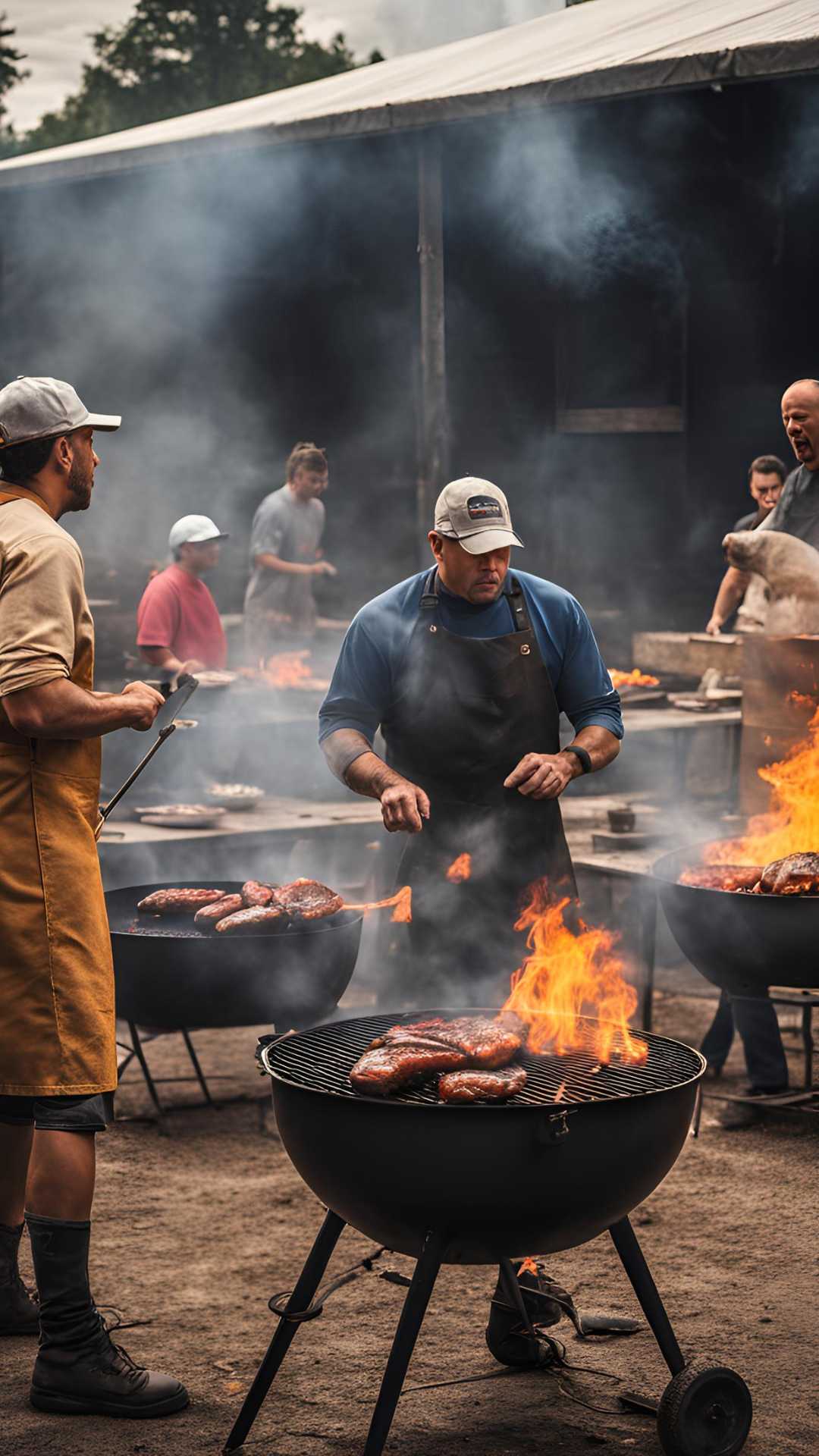
Flavor Profiles: Charcoal vs. Gas
The flavor profiles of foods prepared on charcoal and gas grills differ significantly. Charcoal grilling is often celebrated for its ability to create that quintessential smoky taste, enhancing the overall culinary experience and making it a favorite among BBQ enthusiasts. This distinctive flavor arises from the burning of charcoal, which releases aromatic compounds that add depth and richness to both meats and vegetables.
Conversely, gas grilling is commonly preferred for its convenience and precise temperature control, resulting in a cleaner, less smoky flavor that some may find less satisfying. Additionally, the texture of grilled items can vary; charcoal can achieve a beautiful char and caramelization that gas grills may struggle to replicate.
For many dedicated grillers, the smokiness and charred appearance are not merely characteristics but essential elements that define BBQ culture. Therefore, the choice between grilling methods becomes a matter of personal preference, significantly influencing the overall enjoyment of the meal.
Temperature Control and Cooking Techniques
Temperature control is a crucial factor in outdoor cooking that can significantly impact the quality of grilled foods. Gas grills offer precise and adjustable heat levels, while charcoal grills necessitate a more hands-on approach to managing heat throughout the grilling process.
Understanding the nuances of temperature management between these two grill types is vital for achieving the ideal cook on various meats and vegetables. For example, direct grilling on a gas grill allows for quick searing and cooking at high temperatures, making it particularly suitable for steaks and burgers. In contrast, indirect grilling provides a low-and-slow cooking method that is ideal for larger cuts, such as ribs or whole chickens.
On the other hand, charcoal grilling requires skillful management of airflow and coal distribution to regulate heat effectively. This technique imparts a smoky flavor that many grill enthusiasts appreciate. Each method presents its advantages, and mastering temperature control can significantly enhance the grilling experience, ensuring that every meal is cooked to perfection.
Health Considerations of Each Grill Type
When selecting between charcoal and gas grills, it is important to consider health implications, particularly regarding carbon monoxide emissions and the potential creation of toxins during the grilling process. This requires weighing the safety aspects of each option carefully.
Both grilling methods present their own health risks. Charcoal grilling can generate harmful substances, such as polycyclic aromatic hydrocarbons (PAHs) and advanced glycation end products (AGEs), due to the combustion of charcoal and fats that drip onto the flames. Conversely, while gas grills are generally cleaner, they can still pose health risks if not properly maintained. Regular inspections for leaks and ensuring adequate ventilation can help mitigate risks like carbon monoxide exposure.
To enhance safety while grilling, it is advisable to:
- Use marinades that can reduce the formation of harmful chemicals.
- Opt for lean cuts of meat.
- Maintain the grill at a moderate temperature.
Incorporating vegetables into your grilling regimen can also promote healthier outcomes and minimize the potential for harmful toxins.
Environmental Impact: Which is Greener?
Environmental impact is becoming an increasingly important factor in your decision between charcoal and gas grills, as discussions center around the sustainability of fuel sources and the overall carbon footprint associated with each grilling method.
As outdoor cooking becomes a staple of leisure activities for many, grill enthusiasts like yourself are beginning to explore how your fuel choices affect the planet. Charcoal, while favored for its ability to enhance the flavor of grilled meats and vegetables, often results in higher carbon emissions due to its production and combustion processes.
In contrast, gas grilling, typically powered by propane or natural gas, is generally perceived as a cleaner alternative, potentially leading to lower greenhouse gas emissions. For those who prioritize ecological responsibility, investigating options such as sustainably sourced charcoal or electric grills can provide a more environmentally friendly grilling experience while still delivering delicious results.
Cost and Fuel Efficiency Comparison
When evaluating the cost and fuel efficiency of charcoal and gas grills, you may find that although the initial investment in a gas grill tends to be higher, the long-term fuel costs and overall efficiency can render it a more economical choice for regular barbecue enthusiasts.
For those who frequently enjoy grilling, it is essential to look beyond just the upfront cost. While charcoal grills usually have lower initial purchase prices, you should consider how quickly the cost of charcoal can accumulate over time, especially compared to the more stable pricing of propane.
Gas grills often offer better longevity and require less maintenance, providing an advantage in terms of value for dedicated outdoor cooks. These factors can significantly influence your decision-making process, particularly if you anticipate using the grill several times a month. It’s important to weigh total ownership costs against the satisfaction of creating perfectly grilled meals.
Cleaning and Maintenance Requirements
Cleaning and maintenance are critical components of both charcoal and gas grills, each presenting unique challenges and requirements that can significantly influence the longevity and performance of your grilling equipment.
For example, charcoal grills typically demand a comprehensive cleaning after each use. This includes disposing of ash and residue, as well as scrubbing the grates to prevent build-up and ensure optimal flavor during cooking. On the other hand, gas grills are generally easier to clean due to the absence of ash; however, they still require regular inspections of burners, gas lines, and interior surfaces to ensure safe and efficient operation.
The maintenance methods you choose not only affect the effort involved but also play a vital role in the development of food flavors and the consistency of heat distribution. This, in turn, can greatly impact your overall grilling experience.
Versatility in Cooking: What Can You Grill?
Both charcoal and gas grills provide remarkable versatility, enabling you to prepare a wide array of foods, from juicy steaks and burgers to flavorful ribs, vibrant vegetables, succulent kebabs, and even gourmet paninis, accommodating diverse culinary preferences.
These grilling methods can transform a simple family dinner into a delightful feast, offering endless possibilities for creativity. For instance, the unique smoky flavor achieved with charcoal can elevate grilled corn on the cob or marinated tofu, while a gas grill allows for precise temperature control, making it ideal for delicate fish fillets or even mouthwatering pizzas.
You are encouraged to embrace the art of grilling by experimenting with marinades, rubs, and various wood chips to enhance the taste of each dish. With both grill types at your disposal, your culinary adventures are boundless, inviting you to push your limits and discover new favorites.
Frequently Asked Questions
What are the main differences between charcoal and gas grills?
Charcoal grills use charcoal as the main source of heat, while gas grills use propane or natural gas. Charcoal grills require more time to heat up, but can reach higher temperatures than gas grills. Gas grills are more convenient and easier to use, with faster heating times and temperature control.
Which type of grill is better for flavor?
Many people believe that charcoal grills provide a smokier and more intense flavor to food, while gas grills are known for a cleaner and more subtle taste. However, with the right techniques and flavoring, both types of grills can produce delicious results.
Is one type of grill more expensive than the other?
Generally, gas grills are more expensive than charcoal grills. This is due to the cost of the propane or natural gas tank and the overall convenience of the grill. However, there are also high-end charcoal grills that can be just as expensive as gas grills.
Which grill is easier to clean?
Gas grills tend to be easier to clean, as they do not produce as much ash and debris as charcoal grills do. However, both types of grills require regular maintenance and cleaning to ensure optimal performance and longevity.
Can I use both charcoal and gas on the same grill?
Yes, there are hybrid grills available that allow you to use both charcoal and gas on the same grill. This gives you the option to switch between the two, depending on your preferences and the type of food you are cooking.
Which type of grill is better for outdoor cooking?
Both charcoal and gas grills can be great for outdoor cooking. Charcoal grills are portable and can be easily taken to camping trips or picnics, while gas grills are more convenient for backyard gatherings and events. It ultimately depends on your personal preferences and needs.

















